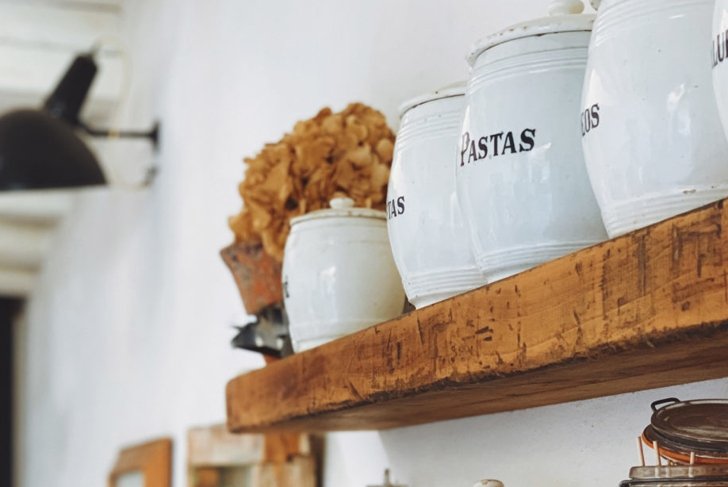
Check out these basics for our 2020 pantry. (You can also download this list as a handy PDF and save it on your phone!) When you’re stocking your pantry, take note of storage and best-before dates. Nuts and certain whole grains are higher in fat and are best stored at 50 to 70 F (10 to 20 C) in a clean, dark cupboard. For longer storage, refrigerate or freeze.
Fat
- assorted oils (e.g. extra-virgin olive oil; flaxseed, grapeseed, coconut, camelina, and some flavoured oils; toasted sesame oil)
- nut/seed butters* (e.g. tahini, peanut, almond, sunflower seed, hazelnut, pumpkin seed)
- nut/seeds (e.g. almonds, peanuts, Brazil nuts, cashews, sunflower seeds, pumpkin seeds, sesame seeds, walnuts, hazelnuts; macadamia nuts, pine nuts)
- coconut milk/cream
Acid
- lemon juice*
- lime juice*
- vinegars (e.g. rice, red wine, white wine, balsamic, sherry, apple cider)
Sweet
- dried fruits (e.g. dates, figs, raisins, cranberries, apricots, prunes)
- candied ginger
- maple syrup
- coconut/raw sugar
- demerara sugar
Savory
- assorted salts (e.g. flaked, Himalayan, Hawaiian black lava salt, Celtic sea salt, kosher salt)
- dried herbs/spices
- miso paste*
- gluten-free low-sodium tamari soy sauce
- gluten-free Worcestershire sauce
- coconut aminos
- nutritional yeast
- Dijon mustard*
- jarred olives*
Dried Goods
- assorted rice (e.g. brown, red, black, jasmine, wild)
- canned goods (e.g. chickpeas, lentils, black beans, cannellini beans, tomatoes, roasted red peppers)
- assorted pastas (e.g. semolina, gluten-free)
- grains (e.g. quinoa, couscous, millet, farro, spelt, sorghum, Kamut, barley)
- roots (e.g. onions, potatoes, squash, beets, garlic)
*These items may require refrigeration.
This excerpt was originally published as part of the article published in the January 2020 issue of alive Canada with the title “2020 Pantry Essentials.”

































